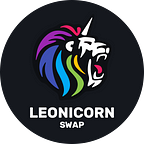Aptos vs Sui: The Battle of top Layer 1 Blockchain
The last crypto rally was the golden time for layer 1 blockchains. We saw Solana, Cosmos, and Algorand at their peak. They were some best Layer 1 projects with high TPS. But this high TPS come with the price of security and scalability. Recently we saw a hack in Solana. That's why Layer 1 projects like Aptos and Sui come to the market. Aptos and Sui are developed in the Move programming language, which is Rust based. Move gives Aptos and Sui high scalability, speed and security. The results of the collaboration between former Diem employees were Sui and Aptos. Together, these chains represent the results of years of research into the scalability of distributed ledgers and have made substantial progress in the previous six months.
Programming Language
Aptos and Sui developed Move, a Rust-based programming language. Move differs from other programming languages due to its enriched resource and linear logic. Sui's version of Move uses an object-centric model. That's why all NFTs, smart contracts and tokens in Sui can be represented as objects. At the same time, Aptos's version of Move follows Diem's Whitepaper. In the design approach, simple transfer needs two ledgers—one for the sender and one for the recipient. In Sui's version of Move, when an object is owned or shared, it is evident in blockchain, but that does not happen in Aptos.
Founders and Partners
The Aptos was created by Aptos Labs, led by two former Diem executives, Mo Shaikh (CEO) and Avery Ching (CTO). Sui was created by Mysten Labs and led by former Meta/Novi team members. The team include Evan Cheng (CEO), Adeniyi Abiodun (CPO), Sam Blackshear (CTO) and George Danezis (CS). In July, Aptos raised $150 Million from investors like Multicoin capital, Jump Crypto a16z, and FTX Ventures. It also raised $200 Million from Katie Haun, Tiger Capital, and a16z and Multicoin Capital. A16z, Electric Capital, Coinbase Ventures and Redpoint back Sui. It raised $36 Million in a Series A round. In August 2022, it attracted another $200 Million in a series B funding round.
Architecture
Sui and Aptos are different from an architectural viewpoint. In Aptos, it records its ledger as a blockchain, whereas Sui stores its ledger server as an "object". At the same time, both blockchains are efficient, scalable and different from Solidity. The main difference between Sui and other layer-one blockchains is the lack of dependency on the consensus protocol. Sui used asynchronous protocol names such as "Narwhal and Tusk". The dual name accurately suggests that the system separates the duties of guaranteeing the accessibility of data presented to consensus (Narwhal) and deciding on a particular ordering of data (Tusk). The fourth version of the Aptos consensus protocol Aptos BFT is now in use. According to them, this version has the lowest latency and is the most technically advanced. The underlying consensus protocol "HotStuff", which was first employed at Diem, is a derivative of the consensus protocol. A unique reputation system highly suitable for decentralized environments has just been added to the system. Along with features that look at on-chain data and automatically adjust leader rotations to take into account unresponsive validators without requiring human intervention
TPS
Aptos can process 130,000 transactions per second. Its team of Sui claimed its TPS is infinite. While in a recent test, a single node processed 120,000 transactions per second. Block-STM plays a significant role in the marketing of Aptos and can increase up to 130,000. Parallel execution, state sync, lazy commit, and collaborative scheduling make this speed possible in Aptos.
Funding
Four months after its debut, Aptos announced raising $200 million at a more than $1 billion valuation in March 2022. In addition to other well-known companies, including Tiger Global, FTX, Coinbase, and 3AC, the funding round was headed by Andreessen Horowitz. Aptos Labs revealed on July 25 t had completed a Series A funding round, which was co-led by FTX Ventures and Jump Crypto and included contributions from Andreessen Horowitz, Multicoin Capital, and Circle Ventures, among others. Bloomberg reports that Aptos Labs' initial $1 billion valuation was more than doubled by the most recent $150 million funding. Mysten Labs said to budget $36M in a series A led by Andreessen Horowitz on December 6; 6her investors included Redpoint, Lightspeed, and Coinbase Ventures. Mysten Labs completed a Series B in September, raising $300M at a valuation of over $2 billion. Many venture capital firms, including A16z Crypto, Jump Crypto, Apollo, Binance Labs, Franklin Templeton, Coinbase Ventures, Circle Ventures, and Lightspeed Venture Partners, among others, participated in the round, which FTX Ventures led.
Ecosystem
Functional blockchain is already available in Aptos. Now users can directly swap tokens in wallets. Pontem Network, Martian and Fewcha are the available wallets in the Aptos ecosystem. DEXes are also available in Aptos. Users can trade Aptos, BTC, and USDT without any risk. NFT Market, Aptos Names and Lending borrowing protocols are available in Aptos. Currently, Sui is now is testnet. Few wallets, DEXes and NFT Marketplaces are built in Sui. More and more exciting projects are now collaborating with Sui. They are planning to launch Mainnet in Q4 of 2022. Over the past few years, the question of scalability has frequently come up in our industry. It became clear that many widely used blockchain systems aren’t built to promote the adoption and expansion of blockchain technology. Aptos and Sui, like Solana, aim to address blockchain restrictions through horizontal scalability instead of vertical scaling. The chains collectively embody the results of years of study into the scalability of distributed ledgers. Sui and Aptos seek to exceed current vertical throughput designs with novel mempool and consensus techniques. Both protocols are still in the very early stages of development, and until the actual implementation of Aptos and Sui’s respective ideas is live and tested, there isn’t enough quantitative data to conclusively state that one model is better than the other
